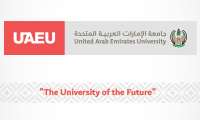
Source:
iStock

With help from UAEU, the World Values Survey is continuing to inform governments, analysts, journalists and agencies worldwide
The World Values Survey is the world’s largest academic programme of its type for social sciences and has been running since 1981. Publishing in cycles of five years, it aims to help both scientists and policymakers understand how peoples’ beliefs, motivations and values change over time.
“We cover 94 per cent of the population of the world, through representative national academic surveys across more than 120 countries,” explains Christian Haerpfer, professor of government and society at UAE University (UAEU) and the current president of the survey. “We’re a hybrid of many social science disciplines including sociology, public health, history, anthropology and international relations, looking at stability or change over time of values and beliefs, and how that impacts on societies around the globe.”
Much of the input for this year’s dataset – which took place between mid-2017 and early 2020 – had been gathered before the onset of the coronavirus pandemic. The network was able to gather data from 77 countries, from a total of 129,000 respondents. It also incorporated data from new entrants such as Bolivia, Greece, Myanmar, Nicaragua and Tajikistan. New items were added for this wave, incorporating issues such as how people participate in politics over social media, social trust and attitudes towards migration. Notable longitudinal trends include a “global rise in tolerance”, according to Professor Haerpfer. “We’re seeing greater support for issues such as gender equality, social tolerance and minority rights, particularly in highly developed countries,” he says. Over time there has been a gradual decrease of religiosity, he adds, with secularisation the main trend since the survey began almost 40 years ago.
The network tries to meet annually but this year’s summit was cancelled because of Covid-19-related travel restrictions. Instead, the academics ran a virtual global summit, which included 25 presentations from its leading researchers. A committee of 20 international scholars meets more regularly over Zoom or Skype, and tries to meet up at international academic conferences they are already attending, where possible. A key role for the World Values Survey is to inform governments and other international organisations, and the data have been used by governments in Sweden, the Netherlands, Russia and Spain. The BBC is using the data for its own media research as part of a global study on media usage.
The latest data, which make up the seventh cycle in the survey’s history, include more than 300 indicators based on a questionnaire that is standardised across all countries. The themes covered include social stereotypes, societal well-being, corruption, migration, religious values and political participation. While the global political situation may seem volatile at present, Professor Haerpfer insists we are still seeing “a tremendous degree of social justice”, particularly in metropolitan and highly educated areas. “In more rural areas there is more intolerance but the majority of people are becoming more tolerant. This can often depend on political leaders and there can also be a difference between how the government presents and what society thinks,” he adds.
There are plans to compare pre- and post-Covid studies of the data to see if the pandemic has had any major impact on people’s values or their sense of well-being and security. This may be challenging, as universities need to be mindful of local restrictions when allowing researchers to carry out the questionnaire. Looking ahead to the eighth cycle of the survey, due to be released in 2025, the hope is to include more countries in Africa. There is currently good coverage in northern Africa and South Africa but less in sub-Saharan countries.
The data are available free of charge, with many universities using the information as a basis for teaching. It has also been used widely by government officials, policy analysts, journalists and international agencies across the world. The logistics are organised centrally but the contributors across the different geographies are volunteers, mostly supported by their academic salaries or stipends from national ministries of development or charitable foundations.
As the office of the president, UAEU has been able to host conferences and organise events around the World Values Survey, and this fits well with both the strategic goals of the university and of the UAE as a nation. “There’s a big interest in social science at UAEU,” says Professor Haerpfer. “We have lots of strategic goals around improving the happiness of the nation.”
Find out more about UAEU and the World Values Survey.

































